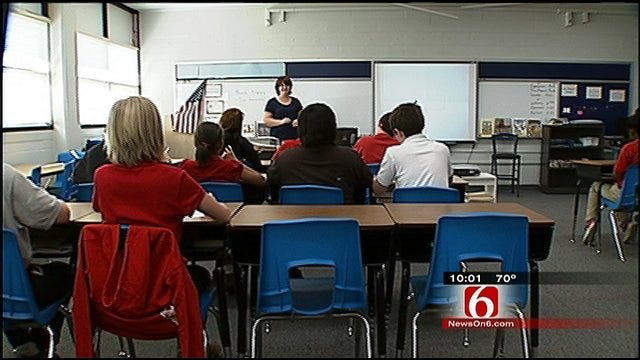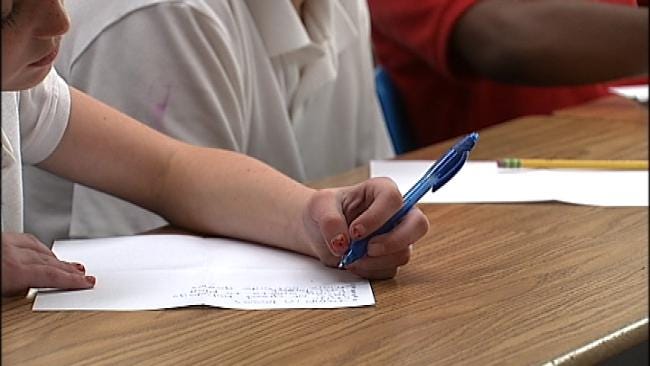New System Reveals Surprising Data About Tulsa Public Schools
Tulsa Public Schools unveiled a new tool to find out just how effective your child's teacher is. It's a new and controversial technique.Monday, October 24th 2011, 11:08 pm
Ashli Sims, News On 6
TULSA, Oklahoma -- Tulsa Public Schools unveiled a new tool to find out just how effective your child's teacher is. It's a new and controversial technique.
Until now, we've really relied on one way to measure teachers and schools and that's state exams. Those who did poorly on state tests were labeled bad schools or low performing. Those who did well were heralded as great schools and high performing.
This new tool says that's not the whole picture. The new system is called value-added. It doesn't just look at a final test score; it measures the growth of that score. It also eliminates the effect of factors outside of the classroom, like socioeconomic background and attendance.
The result: you can drill down to see if a teacher is boosting scores, regardless if they have low-achieving students or high-performing ones.
For example, Eugene Field Elementary School may not look successful on the surface--only 51 percent of its students are on grade level in reading and 63 percent are on grade level in math--but when you look at the value-added numbers, your opinion might change.
In reading, TPS' average growth rate is a 3 out of 5, but Field students are growing faster than that with an average of 3.4. In math, their results are even better. The district average remains a 3, but Field students are growing almost a full point faster than TPS' average.
The following schools have great reputations, but may not be doing as well as you think:
Wright Elementary has more than 80 percent of their students on grade level in math, which is pretty great. But the value-added data indicates the average Wright math scores aren't growing at the same rate as the district average, in fact when it comes to growth they're falling behind what they're capable of. But is that fair with Wright's scores being so high?
Take a look at Carnegie Elementary. It's arguably one of the highest performing schools in the district. If it was a matter of simply topping out they would be below the district average too. But the value added data shows Carnegie students aren't just testing well; they're growing their scores faster than the district average.
TPS says this kind of data proves Field teachers are doing something right and they want to replicate that throughout the district.
"Tulsa public schools is adamant and very determined that there will be an effective teacher in every single classroom. And this is an important component in insuring that there is an effective teacher in every single classroom. It is what makes the difference," said TPS Superintendent Dr Keith Ballard.
The system is controversial, because it will soon be part of the way teachers are graded. A new law says a system like this has to make up more than a third of a teacher's annual evaluation.
TPS leaders say it's possible for great test scores to mask the fact that students aren't learning as much as they should.
More Like This
October 24th, 2011
January 2nd, 2025
September 29th, 2024
September 17th, 2024
Top Headlines
January 10th, 2025
January 10th, 2025
January 10th, 2025
January 10th, 2025












